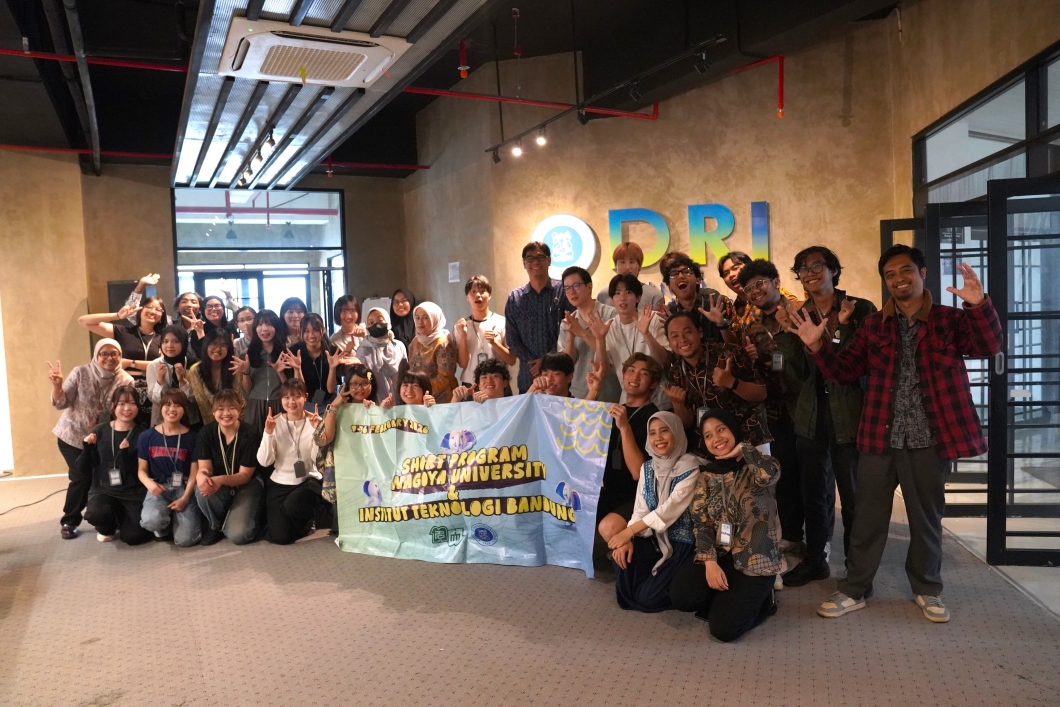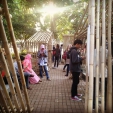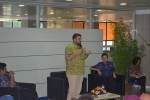Round Table Discussion from SAPPK ITB : "Development Permits in the Omnibus Law"
By Adi Permana
Editor Adi Permana

BANDUNG, itb.ac.id – The Urban Planning and Design Research Group of School of Architecture, Planning, and Policy Development of Bandung Institute of Technology (SAPPK ITB) held a Round Table Discussion with "Development Permits in the Omnibus Law" as the theme on Thursday (1/23) at Seminar Room in Sugijanto Soegijoko Building (Labtek IX-A), ITB, Jalan Ganesa No. 10, Bandung.
This discussion was organized to respond to the Omnibus Law controversies, especially for its effects on development permits. There present some stakeholders at the event, such as The Public Works and Public Housing Ministry representatives, staff of Republic of Indonesia National Council for Special Economic Zone, and lots of academics, including reasearchers and students. The discussion itself was moderated by Prof. Ir. Haryo Winarso. M.Eng, Ph.D as the group leader of Urban Planning and Design Research Group.
Discussion was started by the first speaker, Prof. Asep Warlan Yusuf, a Law Professor in Parahyangan Catolic University. He argued that the Omnibus Law cannot be applied to society if the law does not meet some fundamental aspects. “The legal aspect alone will not be sufficient, it is also necessary to have aspects of justice, certainty, and usefulness for economic growth,“ he continued elaborating.
Then, the conversation continued by Dr. Petrus Natalivan I. S.T. M.T., a researcher from Urban Planning and Design Research Group. Accordimg to his statement, he believed that the goal of simplifying the existing spatial planning regulations which ecisted in the Omnibus Law is appropiate. He also reminded the public not to be mistaken in interpreting the simplification as negation. For Petrus, simplification not negation is part of the legal improvement framework in Indonesia’s law. "Like PP Number 27 of 2012; Article 13; paragraph (1); letter b regarding Environmental Permits, the regulation states that there is an AMDAL (cause effect analysis of enviromental damage) exemption, not abolishment, statement in the environmental permit. This does not mean that the government will eliminate the AMDAL in the environmental permit, does it?" he said.
The third speaker, Dr. Ir. Denny Zulkaidi. MUP, colleague of Dr. Petrus in the same research group, also expressed his opinion in the discussion. He highlighted that Omnibus Law, especially those related to spatial planning regulations, must have a precise and careful implementation. "If implemented, first of all, we need to conduct a strategic environmental study that has been integrated with the RDTR (detailed urban spatial planning). Then, there must be an update list of activities requiring AMDAL (high risk activities, above a certain minimum scale) and the latest studies related to special protection regulations for cultural heritage, "he said.
The last statement on the discussion was delivered by Dr. Suhirman. S.H., M.T., part of Policy Planning and Development Management of SAPPK ITB. He spoke to provide a new perspective to see this issue the by using political economy principle of licensing regulations called rational choice. According to him, it is highly undesirable that licensing regulations are continuously violated because the legal sanctions are not proportional to the losses incurred from the violations. “For this reason, the regulation regarding licensing must not only be fixed on the type of license, the process of obtaining the license is also crucial to regulate. This is done in order to create a perfect and transparent mechanism in involving the private sector and the government related to licensing issues,” he added.
Reporter: Grace Natasya Christiadhi
Translator: Ferio Brahmana
Translator: Ferio Brahmana




.jpg)



